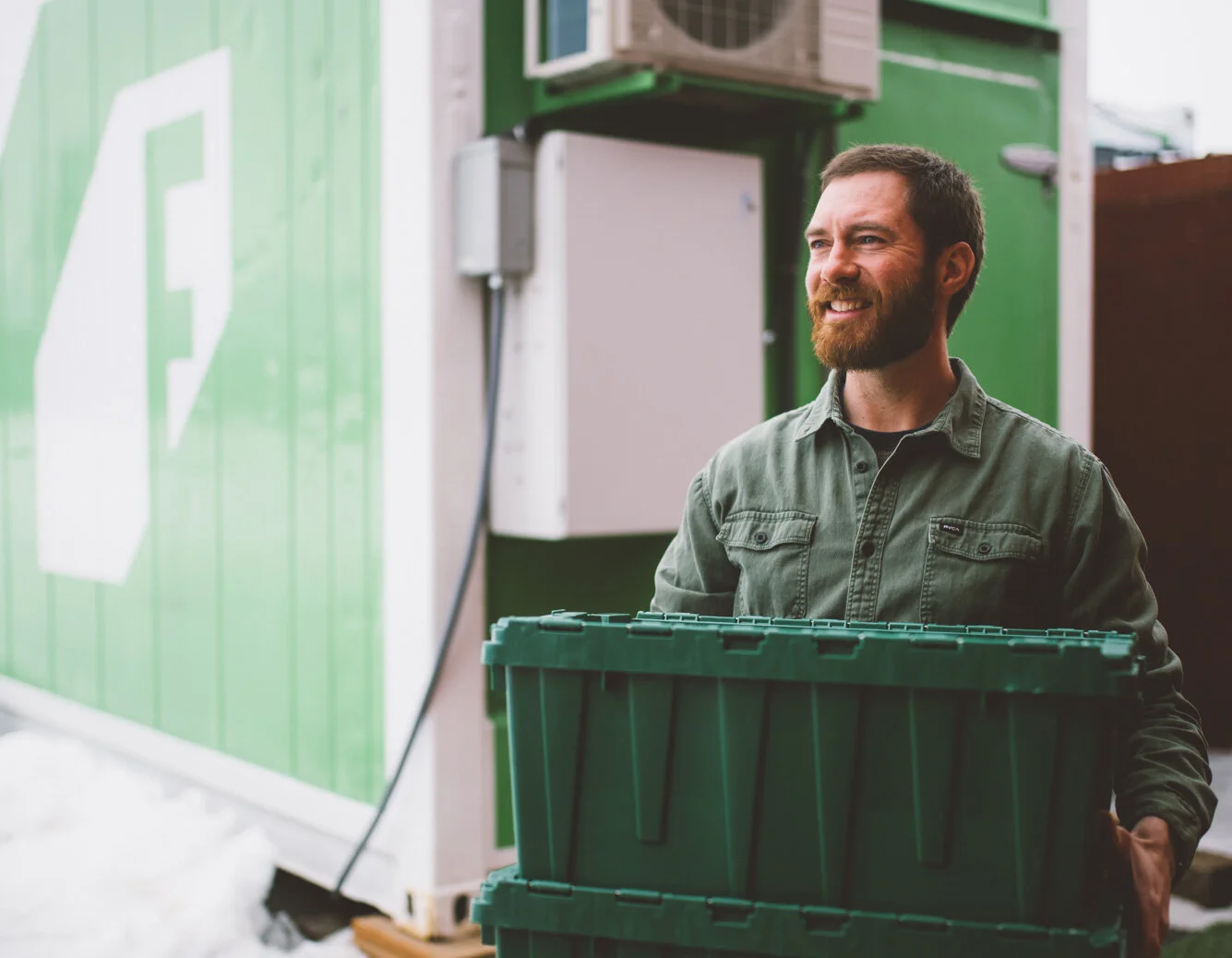Creating An Inclusive Jobs Program with Container Farming
6 Questions with Zach Zepf of Zeponic Farms
One of the best parts of being part of the Freight Farms team is talking to our freight farmers and hearing about their successes, their businesses, their customers, and their challenges. They are a wealth of information, so now we are sharing some of their stories with you!
Social entrepreneur Zach Zepf launched his farming business early in 2016, not only to grow hyper-local produce, but also to provide a social good for his community. Zach partnered with Mason LIFE, an organization that offers work and educational experiences to individuals with special needs through Mason University. Zach's brother Nic has autism, so Zach combined his knowledge of agriculture with his commitment to the special needs population and launched Zeponic Farms to provide employment for his brother and others in his Leafy Green Machine. Zeponic Farms sells their produce to Sodexo, the company who runs the dining hall on Mason’s campus. We recently had the opportunity to chat with Zach about the mission behind his farming business.
Zach and his brother Nic showing off some heads of hydroponic lettuce from their farm.
Freight Farms (FF): What’s the best piece of advice you can give to people interested in becoming Freight Farmers?
Zach Zepf (ZZ): I think the key is to write out your goals and expectations for the farm. Then talk to a current Freight Farmer who might be in your state, or in a similar market, and discuss your goals and expectations, see if what you're trying to do is feasible.
“If we really want to get the full benefit of what we eat, it needs to go from farm to fork quickly. As the demand shifts towards locally sourced food, local farmers and the end consumer will benefit”
FF: What’s the most pressing issue in food and agriculture that you’d like to see solved?
ZZ: To me it's food miles. If we really want to get the full benefit of what we eat, it needs to go from farm to fork quickly. As the demand shifts towards locally sourced food, local farmers and the end consumer will benefit. I would love to see a food chain without the big trucks!
FF: What is one small change everyone can make in their daily lives to make a big difference in our food system?
ZZ: When you buy food, whether at a restaurant, grocery store, or market, ask where it’s from. How was it grown? Who grew it? Asking questions and showing interest tells the retailer that their customers care about quality, and they will start sourcing their food differently.
FF: What’s the story behind your Freight Farms project?
ZZ: My brother Nic who is 23 has Autism, and although he does extensive volunteer work, he was unemployable and couldn't find a job that gave him a purpose. At the time, my brother and I had been backyard gardening, and farming became something that he enjoyed. My family found Freight Farms and saw it as an opportunity to give my brother a job providing high-quality local produce for his community. The shipping container model was small, but it turned out to be a great learning tool for my brother and other adults with Special Needs getting introduced to the new industry. For Nic and our Special Needs adults, it was all about making sure they understood the importance of what they were doing. Whether it was planting the seeds, harvesting the greens, or handing produce to the chefs, we wanted them to feel connected to the community, and by starting in a smaller environment, I think they really got it. We partnered with our local college, and created a cool farm to dining hall concept grown by some farmers you would love to meet!
FF: How do you package your crops?
ZZ: For us, we sell directly to a college dining hall, so all of our produce is put into bins and delivered direct, so we don’t have any packaging costs and less labor. When it comes to hydroponics, clamshell lettuce is very popular. We try to stay away from single-use plastic, and while coming up with creative, sustainable ways to package products is certainly a challenge, it provides an opportunity to think outside the box and differentiate your brand on the shelf.
FF: Which individuals, groups, and communities do you strive to reach, and why have you chosen to get involved with these groups?
ZZ: We chose the college community because students in our area are requesting more local food options and focusing on sustainability. Education is a key component to the local food movement, so I think schools are a great place to start. Most students when given a choice will choose the local option at their dining hall, and once they taste the difference in local produce, when it is time to buy groceries in the future, I think they will remember!
Make sure to follow Zeponic farms on Facebook and Instagram for the latest updates about the business and what's growing on the farm!
Are you interested in starting or supporting a non-profit with a shipping container farm? See how you can use the technology to change your community.












